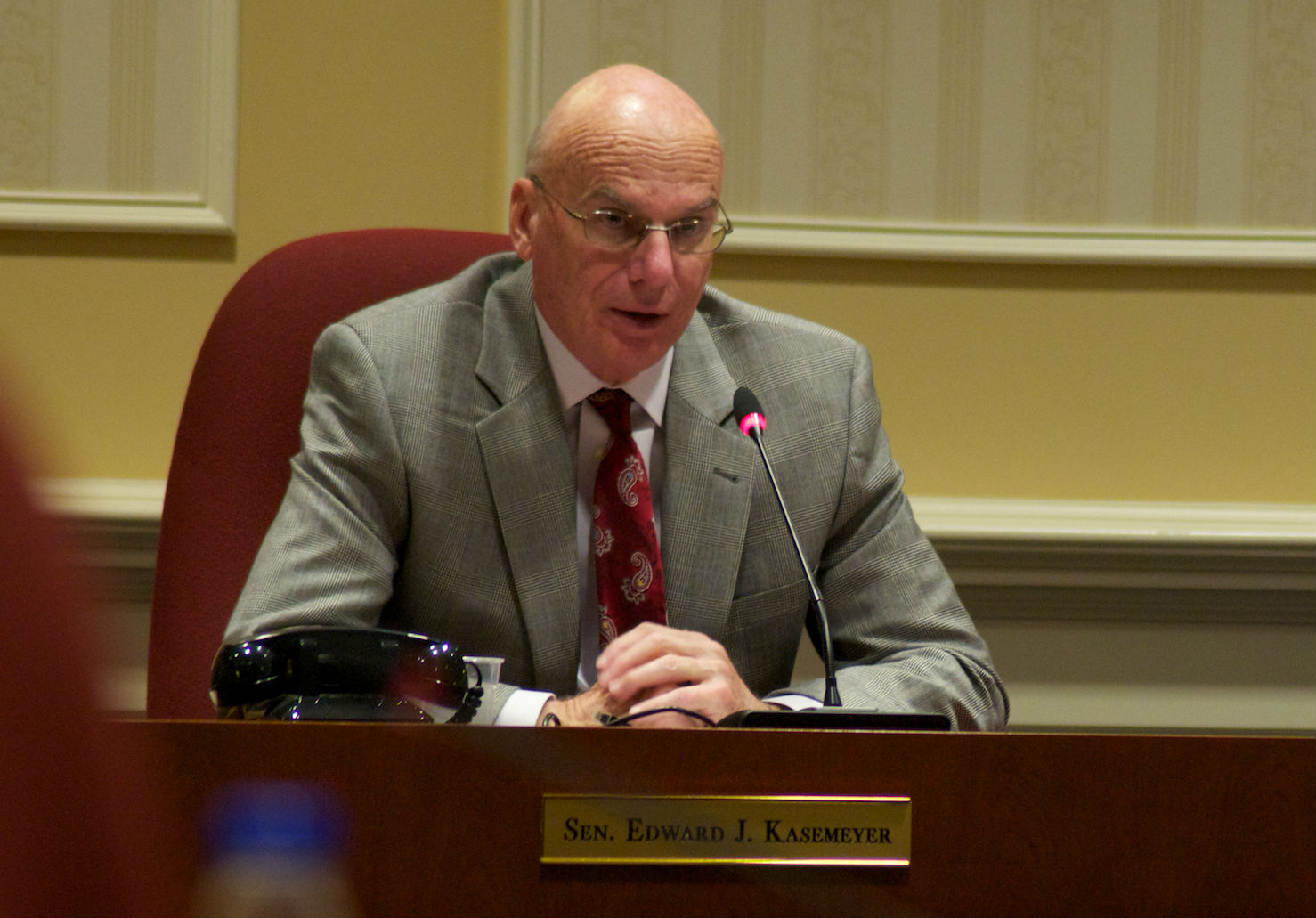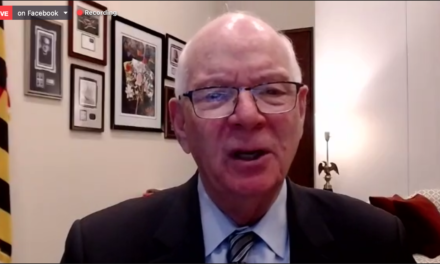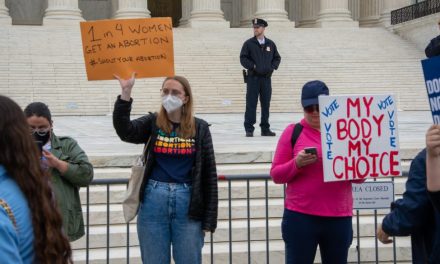By Jeremy Bauer-Wolf
In a state overwhelmingly controlled and governed by the Democratic party, Maryland Republicans sometimes struggle to find a political foothold and exert influence.
At the Johns Hopkins University campus Thursday evening, the GOP gubernatorial candidates were posed questions along that line of thought: Could you work with the other side of the aisle? How do you persuade Democrats to join your line of thinking, and the Republican party?
More pertinently: Can you win?

GOP gubernatorial candidates Charles Lollar, David Craig and Ron George (from left to right, respectively) participate in a debate sponsored by the Johns Hopkins College Republicans Thursday, April 10. The fourth contender, Larry Hogan, did not attend.
Three of four of the Republican contenders for governor, sparring for their party’s nomination, participated in a debate sponsored by the Johns Hopkins College Republicans.
Larry Hogan, the former state cabinet secretary and chairman of political grassroots organization Change Maryland, was absent from the debate, attending another unspecified event, according to debate moderator Richard Sher, host of the Baltimore talkshow “Square Off.”
The three present, David Craig, Harford County Executive, Ron George, a delegate from Anne Arundel County, and Charles Lollar, a veteran and a leader of various state and local political organizations, discussed bipartisan diplomacy, and issues of the state economic health, job creation and education.
Candidates assert they can win, make change
“If there’s ever been a time we can win, it’s now,” Lollar said. “O’Malley has done a great job ostracizing members of his party.”
Sher asked how well the candidates thought they could collaborate with the Democrats.
George ticked off a long-list of bipartisan accomplishments in his time in the House of Delegates — he said he didn’t “run to the middle” but could bargain with the Democrats.
“The other thing is that I would own … the purse strings of the state,” he said. “He controls budget, and that gets people to the table, folks. I know how to work with them.”
Many common positions among debaters
All the candidates favored tax reduction.
An important plank of Lollar’s campaign was eliminating the personal income tax, echoed by Craig and George.
George proposed a cut to the income tax, and lowering the corporate income tax — he also called for cuts to property and equipment taxes for manufacturing firms.
Craig said he wanted to appeal to businesses who might have already fled the state or are reconsidering their status in Maryland — he said diverse portfolio of companies in Maryland would inspire competition among them and reduce prices for consumers.
Sher also asked how the candidates might reduce Baltimore’s bloody crime rate.
George said he would introduce a new treatment and rehabilitation program to reduce the recidivism rate — George said he wasn’t being “nice” to the criminals but that the mental and physical health of inmates intersects with the problem of violence.
Craig touted the fact that Harford County was the safest in the entire state’s.
The correctional system needs to be reformed, both Craig and Lollar said, citing the Baltimore City Detention City scandal, in which correctional officers accepted bribes from Black Guerrilla Family gang, and some were even impregnated by BGF inmates.
Candidates want to pull out of Common Core education curriculum
The three candidates also said they would do away with Common Core. Craig, a former teacher, said he would redistribute wealth from administration to the teachers.
Lollar, whose wife is a teacher, also agreed, and said overall, not just in education reform, should Maryland turn down federal dollars.
“We need to become a ‘just-say-no’ state,” Lollar said.
The gubernatorial campaigns are entering their final stretch, nearing the June 24 primary.







Recent Comments